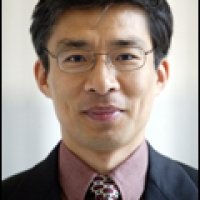Growing Up and Going Out: The Development and Internationalization of Chinese NGOs
In this talk, Timothy Hildebrandt will discuss his new book -- Social Organizations and the Authoritarian State in China -- which examines the development of civil society groups in China.
Overview
In the last decade the number of nongovernmental organizations (NGOs) in China has exploded, with these social organizations operating in an increasing number of areas. All the while, the political system in China has not undergone the kind of change expected upon such growth of civil society.
In this talk, Timothy Hildebrandt will discuss his new book -- Social Organizations and the Authoritarian State in China -- which examines the development of civil society groups in China. His presentation will cover a cross-regional, multi-case study examination of NGOs in three different areas: environmental protection, HIV/AIDS prevention, and gay and lesbian rights. By carefully breaking apart and analyzing the opportunity structure facing Chinese social organizations, the book demonstrates how Chinese NGOs must adapt activities to match the changing interests of local governments. Its comparative approach also provides for important insights into variation across locale and issue area. Dr. Hildebrandt argues how social organizations paradoxically strengthen, rather than weaken, the authoritarian regime in China. In this talk, he will also discuss how this particular model of state-society relations might soon be exported to other authoritarian contexts as Chinese NGOs “go out” to the rest of the world.
Yang Guobin, a former Wilson Center Scholar, will draw on his own research into Chinese citizen and NGO activism on the Internet to make comments on Dr. Hildebrandt’s presentation.
Speakers
Hosted By

China Environment Forum
Since 1997, the China Environment Forum's mission has been to forge US-China cooperation on energy, environment, and sustainable development challenges. We play a unique nonpartisan role in creating multi-stakeholder dialogues around these issues. Read more

Indo-Pacific Program
The Indo-Pacific Program promotes policy debate and intellectual discussions on US interests in the Asia-Pacific as well as political, economic, security, and social issues relating to the world’s most populous and economically dynamic region. Read more

Kissinger Institute on China and the United States
The Kissinger Institute works to ensure that China policy serves American long-term interests and is founded in understanding of historical and cultural factors in bilateral relations and in accurate assessment of the aspirations of China’s government and people. Read more

Global Risk and Resilience Program
The Global Risk and Resilience Program (GRRP) seeks to support the development of inclusive, resilient networks in local communities facing global change. By providing a platform for sharing lessons, mapping knowledge, and linking people and ideas, GRRP and its affiliated programs empower policymakers, practitioners, and community members to participate in the global dialogue on sustainability and resilience. Empowered communities are better able to develop flexible, diverse, and equitable networks of resilience that can improve their health, preserve their natural resources, and build peace between people in a changing world. Read more
Thank you for your interest in this event. Please send any feedback or questions to our Events staff.












